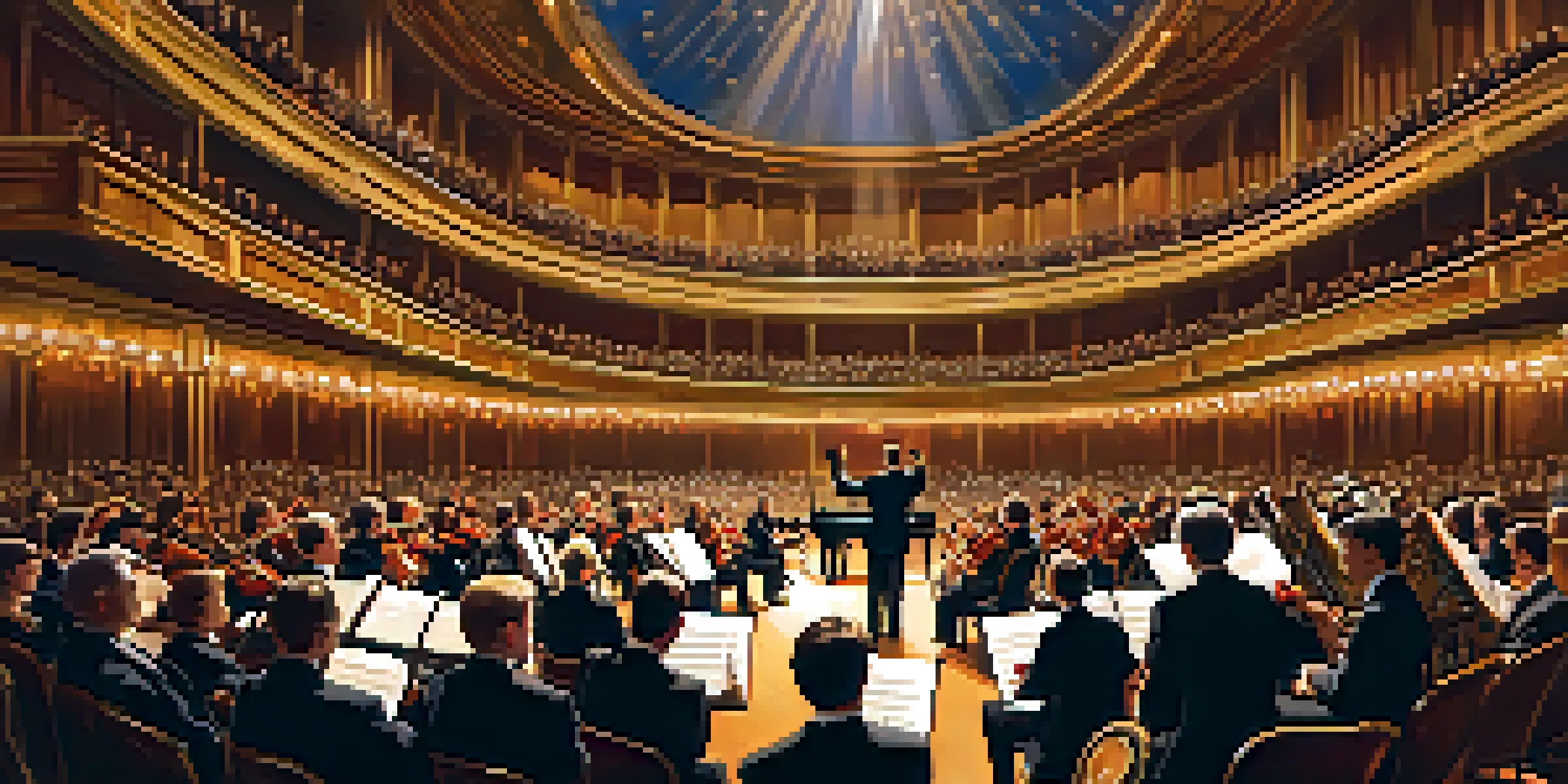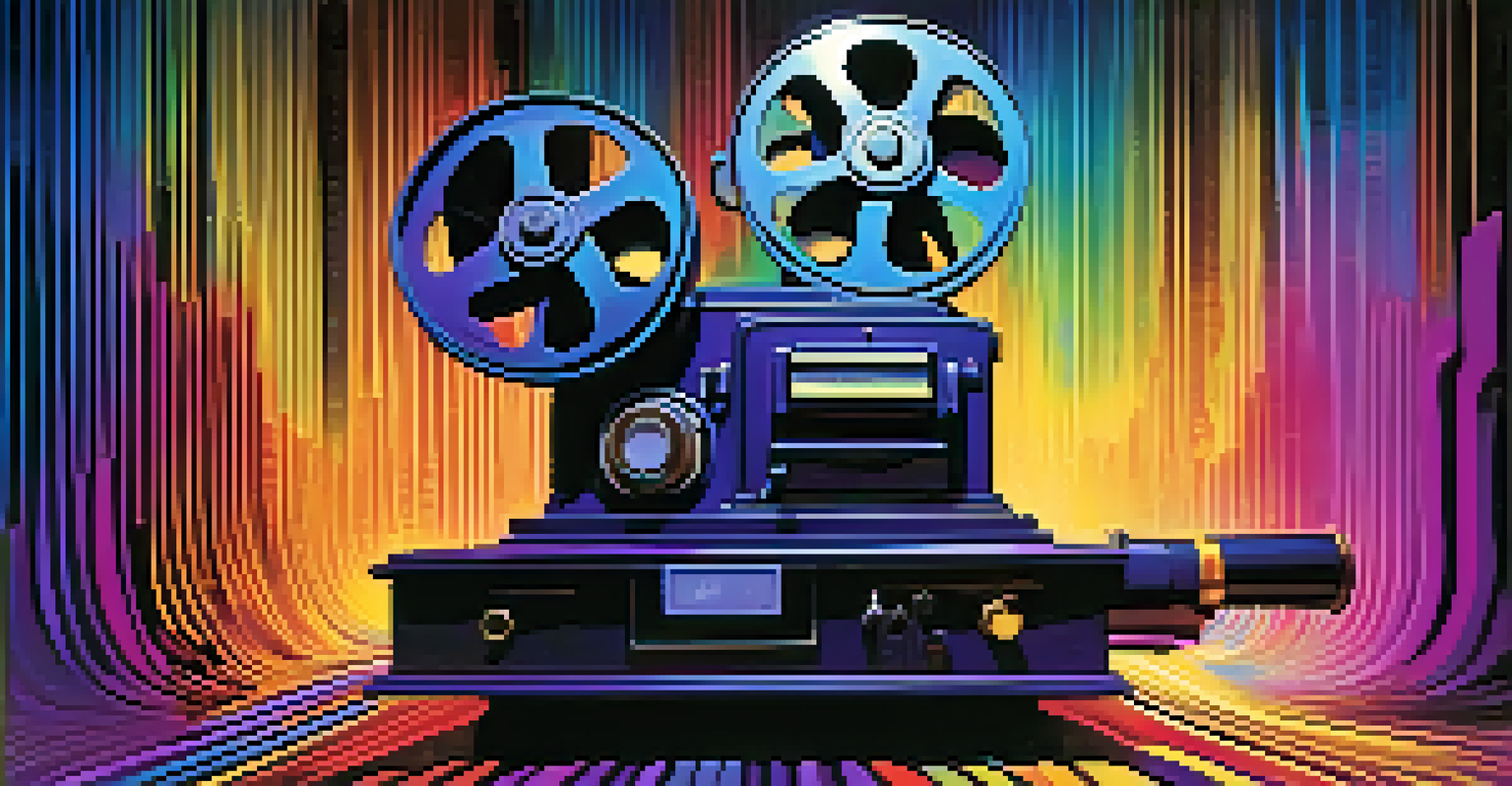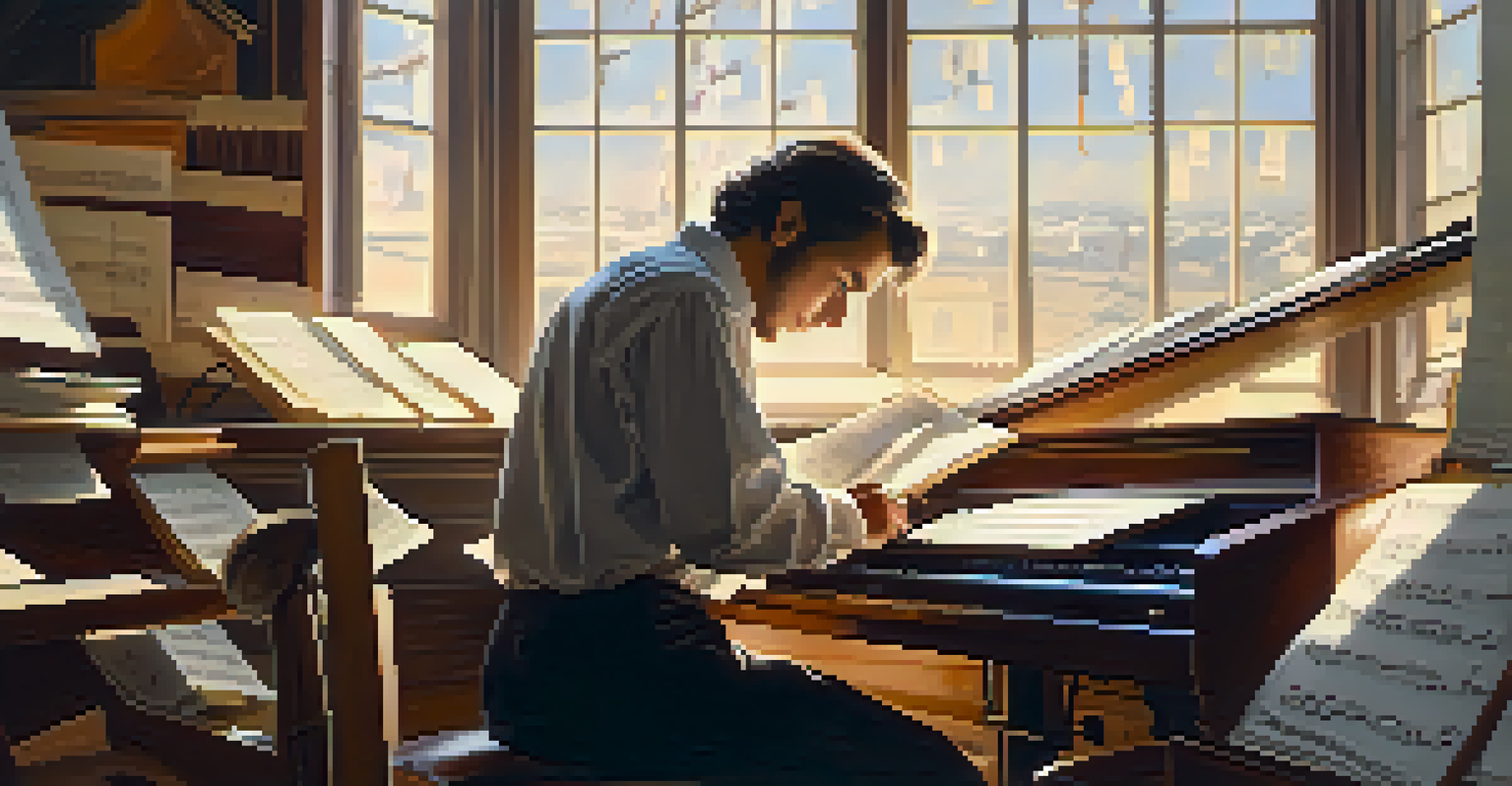Iconic Film Scores: A Look at Music That Defined Cinema History

The Power of Music in Film: Setting the Scene
From the opening credits to the closing scene, music plays a pivotal role in film. It not only enhances the visual experience but also evokes emotions that words sometimes cannot express. Think about the haunting melodies that linger long after the movie ends – that’s the power of a great score.
Music can change the world because it can change people.
For instance, the iconic score of 'Jaws' by John Williams uses just two notes to create a sense of impending doom. This simple yet effective approach illustrates how music can elevate suspense and tension on screen. The right score can turn a good movie into a memorable experience.
As we delve into iconic film scores, we'll discover how these musical masterpieces have shaped the storytelling landscape and left an indelible mark on audiences around the world.
John Williams: The Maestro of Modern Cinema
When we talk about iconic film scores, it’s hard not to mention John Williams. With a career spanning over six decades, his compositions for films like 'Star Wars', 'Indiana Jones', and 'E.T.' have become cultural touchstones. His ability to create memorable themes is unmatched, making him a household name.

Williams's score for 'Star Wars' is a perfect example of how music can define a film's identity. The powerful brass, sweeping strings, and memorable motifs transport viewers to a galaxy far, far away. It’s not just music; it’s a call to adventure that resonates with audiences of all ages.
Music Enhances Film Experience
Film scores evoke emotions and elevate storytelling, transforming good movies into memorable experiences.
Williams's influence on film music is profound, inspiring countless composers and filmmakers to recognize the importance of a compelling score in storytelling.
Ennio Morricone: The Sound of the Spaghetti Western
Ennio Morricone revolutionized film music with his unique style, particularly in the spaghetti western genre. His score for 'The Good, the Bad and the Ugly' is a masterclass in how music can enhance the narrative. The use of whistling, electric guitar, and orchestral elements creates a soundscape that is instantly recognizable.
Without music, life would be a mistake.
Morricone’s ability to blend diverse musical influences made his scores not just background music but integral parts of the films. For example, the haunting theme of 'Once Upon a Time in the West' captivates audiences, drawing them deeper into the story’s emotional core.
His work has left a lasting legacy, showcasing how innovative compositions can elevate the cinematic experience and remain timeless in the hearts of film lovers.
Hans Zimmer: Redefining Epic Soundscapes
Hans Zimmer is another giant in the world of film scores, known for his ability to create epic soundscapes that resonate with viewers. His work on films like 'Inception' and 'The Lion King' demonstrates his versatility and creativity. Zimmer often combines orchestral music with electronic elements, creating a sonic experience that is both powerful and immersive.
The score for 'Inception', particularly the track 'Time', is a perfect example of how music can build tension and emotion simultaneously. The gradual crescendo mirrors the film's complex narrative, pulling viewers deeper into its twists and turns.
Iconic Composers Shape Cinema
Composers like John Williams and Ennio Morricone have created timeless scores that define film identities and influence future generations.
Zimmer’s innovative approach to scoring has set a new standard in the industry, proving that music in film is not merely an accompaniment, but a crucial storytelling tool.
Classic Composers: The Foundations of Film Music
Before the modern era of film scores, composers like Bernard Herrmann and Max Steiner laid the groundwork for cinematic music. Herrmann’s score for 'Psycho' introduced a new level of psychological tension, particularly with its infamous shower scene. The shrieking violins became synonymous with horror, showing how music could manipulate audience emotions.
Similarly, Max Steiner's work on 'Gone with the Wind' helped establish the importance of thematic motifs in film. His ability to weave intricate musical themes throughout the film created a rich emotional tapestry that enhanced the storytelling.
These classic composers not only shaped the sound of their respective eras but also set the stage for future generations of film composers, highlighting the lasting impact of their contributions.
Thematic Scores: Creating Iconic Characters
Thematic scores play a crucial role in character development and storytelling in film. Composers often create specific musical themes that represent characters or ideas, making them instantly recognizable to audiences. For instance, the 'Batman' theme by Danny Elfman is more than just music; it encapsulates the hero’s dark and complex nature.
In 'Harry Potter', John Williams crafted distinct themes for each character, allowing viewers to connect with them on a deeper level. The familiar melodies evoke nostalgia and enhance the emotional experience of the film.
Future of Film Scoring is Innovative
As technology advances, composers are embracing new tools and styles, leading to unique scores that enrich the cinematic experience.
These thematic scores create a rich auditory landscape that helps to establish character identity, drawing viewers into the narrative and making each character memorable.
Cultural Impact: How Film Scores Shape Society
Film scores often reflect cultural themes and societal issues, making them a powerful medium for storytelling. For instance, the score for 'Black Panther' by Ludwig Göransson incorporates African musical elements, celebrating cultural heritage while enhancing the film's narrative. This blend of traditional and contemporary sounds resonates with audiences around the world.
Additionally, scores can influence public perception and emotions surrounding events depicted in films. For example, the somber tones of the score in 'Schindler's List' evoke a deep sense of tragedy and reflection, reminding viewers of the historical significance of the Holocaust.

As such, film scores not only enhance the cinematic experience but also contribute to broader societal conversations, showcasing the profound impact music can have on culture.
The Future of Film Scores: Embracing Innovation
As technology evolves, so does the landscape of film scoring. Composers are now incorporating digital tools and innovative techniques, creating scores that push boundaries. For instance, the use of virtual instruments and software has opened new avenues for creativity, allowing composers to experiment like never before.
Additionally, with the rise of streaming platforms, there’s a growing demand for unique and diverse scores that cater to varied audiences. This shift encourages composers to explore different genres and styles, enriching the cinematic experience.
The future of film scores is bright, as we witness a blend of traditional orchestration with modern sounds, promising new musical journeys that will continue to define cinema history.